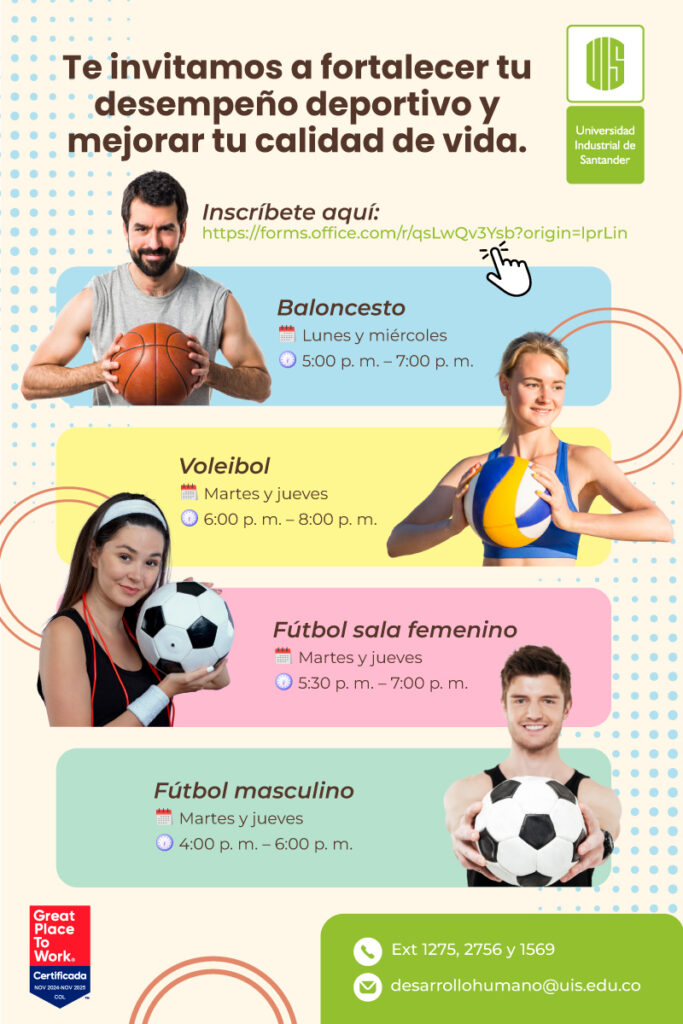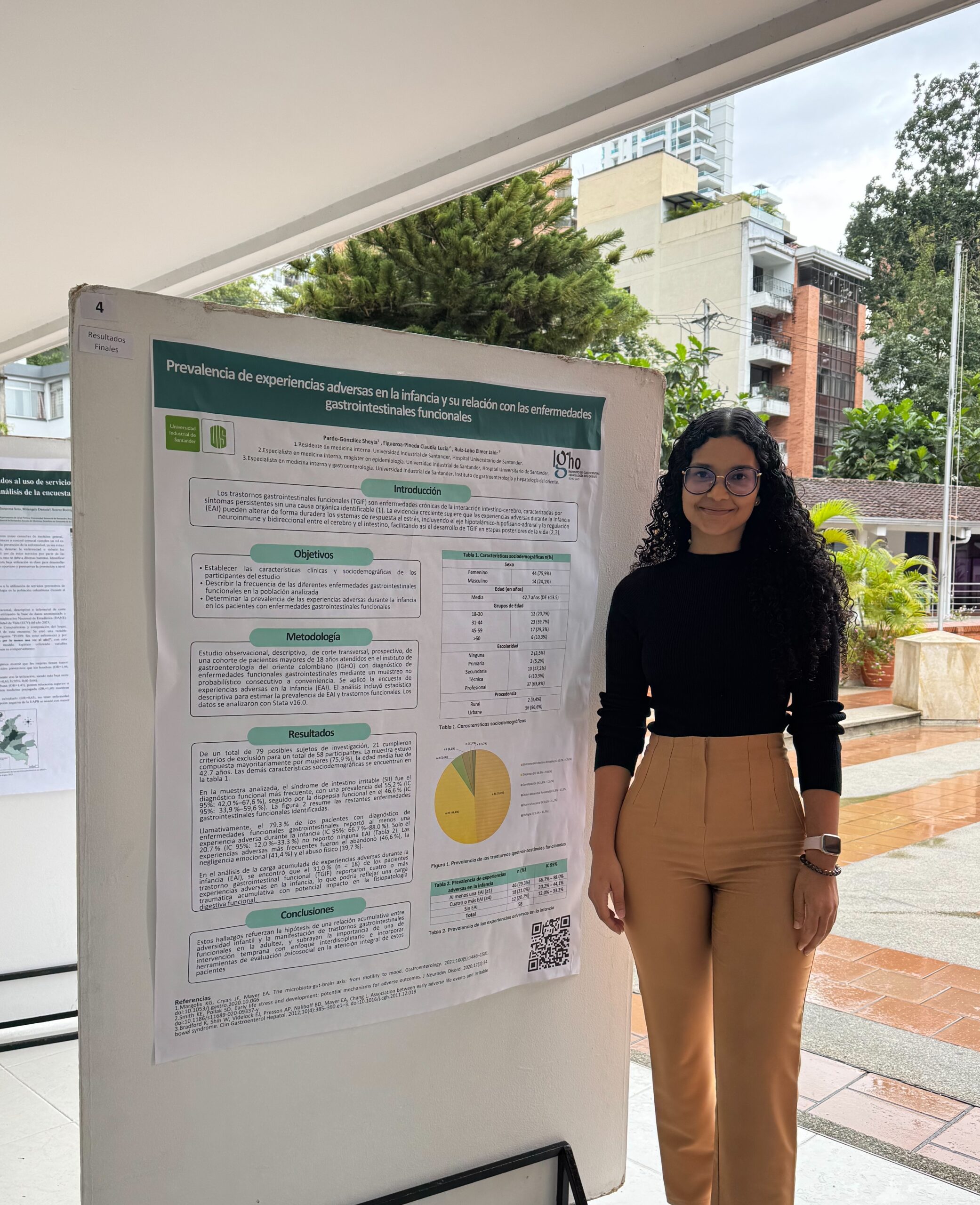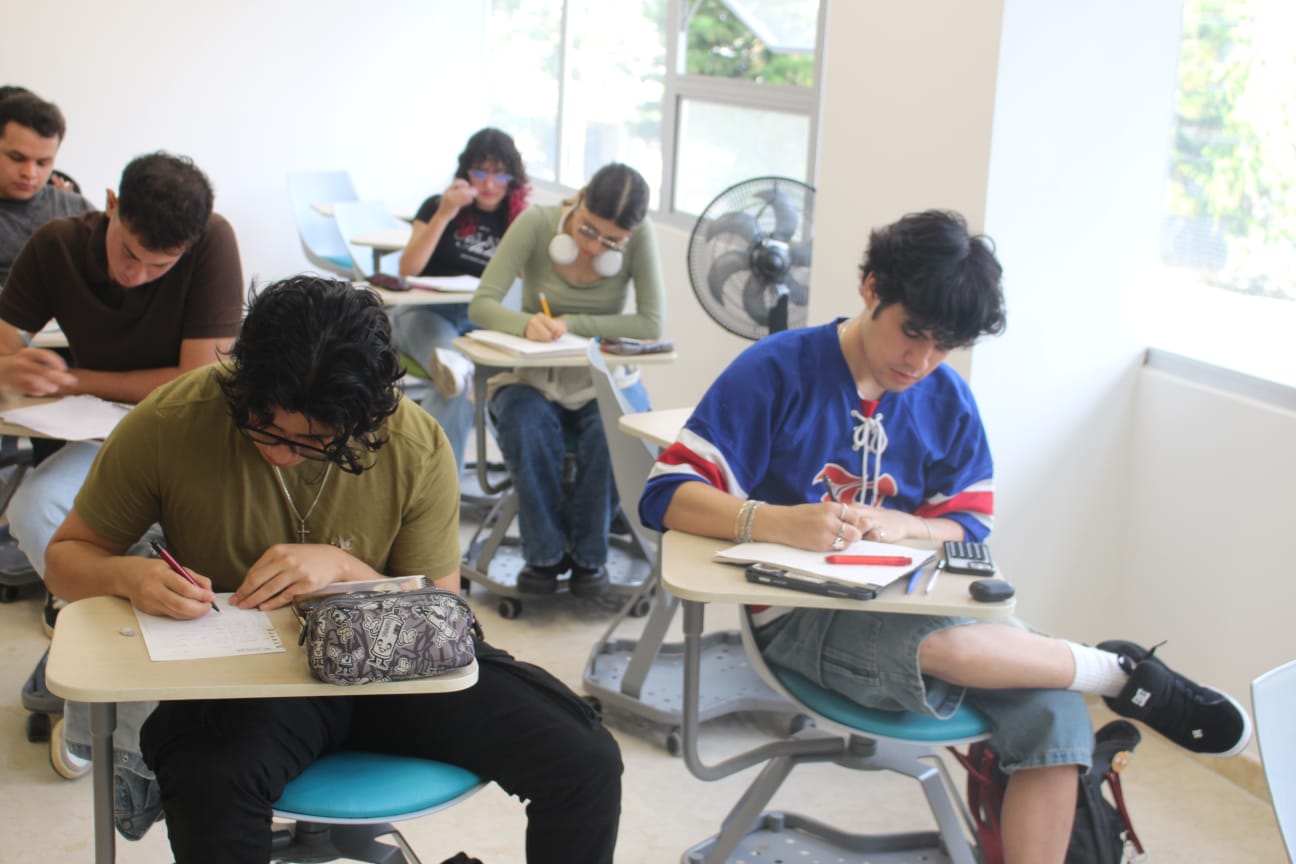
In an era where the pace of life is increasingly fast-paced and work demands require great mental and physical effort, self-care becomes a priority. Physical activity is presented not only as a means of keeping fit, but also as an essential ally in maintaining good mental health.
Numerous studies have supported the idea that regular exercise contributes to stress reduction, mood improvement and the prevention of mental illnesses such as anxiety and depression. The release of endorphins during physical activity is essential for gaining mental clarity and promoting an overall sense of well-being.
Understanding the relevance of this issue, the Human Talent Management Division of the Universidad Industrial de Santander has implemented a program aimed at its employees in the academic-administrative units, which promotes sports training in five different disciplines: basketball, volleyball, women’s indoor soccer, men’s soccer and swimming. This approach not only seeks to promote physical health among its employees, but also to ensure a healthier and more productive work environment, where employees feel motivated and cared for.
The schedules for sports training by discipline are as follows:
- Basketball: Mondays and Wednesdays from 5:00 to 7:00 p.m.
- Volleyball: Tuesdays and Thursdays from 6:00 to 8:00 p.m.
- Women’s indoor soccer: Tuesdays and Thursdays from 5:30 to 7:00 p.m.
- Men’s Soccer: Tuesday and Thursday from 4:00 to 6:00 p.m.
- Swimming: Tuesdays and Thursdays from 12:30 to 1:30 p.m.
Employees interested in joining one of the training teams may contact the Human Talent Management Division at the PBX: +57 (607) 634 4000 ext. 1569 or write to the e-mail address: dho.profesional@uis.edu.co.
By offering these spaces for sports practice, the university not only contributes to physical well-being, but also strengthens the sense of community and belonging among its staff. These initiatives demonstrate how institutions can lead positive change by promoting healthy lifestyles that benefit both the individual and the community at large.





